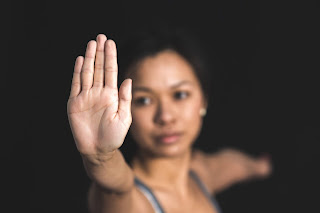What is meditation, how do I practice it and how can it benefit me?
What is meditation, how do I practice it and how can it benefit me?
Meditation is an ancient practice and is over 3000 years old and practicing it on a regular basis will help to improve all aspects of our life including our relationships, health, work and sleep. Through an increased awareness and focus which meditation will provide we are then able to gain clarity in our thoughts helping to cultivate and achieve our life goals and lead a more productive and content life. At times we may feel a little lost, have a lack of drive or be confused about which direction in life to take, a common question we may often ask ourselves is who am I and what is my purpose in life? Through meditation we can help regain focus and increase our connection with our self and others so we make decisions based on love and not fear.
The higher the frequency we are able to operate at the more abundant our life becomes in all areas, some people are afraid of their thoughts or being alone with themselves but to spend time focussing within is where we find the answers to what we are searching for and regain the personal power so we can find the confidence and passion to create the life we have always wanted.
Meditation helps to encourage a sense of awareness, relaxation and clarity, through our 5 senses we perceive the material world and the different parts of our mind will then develop either pleasant or unpleasant sensations in our mind and body depending upon what our individual perception is of what we see and experience. Everything in life is constantly changing including ourselves as our energy peaks and falls due to the sensations we experience which are a combination of our thoughts and emotions otherwise known as electromagnetic impulses.
There is often so much focus on the external world that we have become separated from the connection within and meditation allows us to regain that connection within ourselves and feel a sense of clarity and peace.
The thoughts that constantly run through our mind create sensations which either have a positive or negative affect on our mind or body depending entirely on what our personal perception is at the time. If the sensations are positive we may start to crave more which can lead to us over indulging and sometimes forming an addiction. However if we perceive the sensations as negative we will reject what we are experiencing and the sensations we feel are pushed down into our subconscious and cellular memory of the body.
They are then stored within the body and if built up over time can create a sense of fear and insecurity and can cause conditions to arise such as Depression or Anxiety which affect 5% of the population, if the sensations we feel are negative they then resonates within and can cause emotional and physical blocks as we navigate our way through life unless we are able to release them through deep healing work or inner child work within ourselves.
Therefore meditation is incredibly important to maintain a sense of wellbeing. There are many ways to meditate using various techniques such as visualisation, breathing, mantras, music, silence and affirmations, as you become more aware the cleansing process will automatically occur, removing limiting beliefs and increasing self-confidence and self-esteem. You may choose to use something that inspires you such as a person or object you love, or something that naturally relaxes you such as a walk in nature. Practising mindfulness or yoga may be helpful or doing an activity which does not require absolute concentration such as gardening when your thoughts can freely wander.
So how can you learn to meditate? There are a variety of ways just choose which you are most comfortable with and commit to doing it on a regular basis. First of all find a quiet space where you will not be disturbed either sitting on a chair with the feet flat on the floor or on a cushion to keep you grounded, sitting crossed legged or lying down. Ensure the spine is kept elongated and you are feeling fully relaxed. The best times to meditate are first thing on a morning to help bring balance and clarity to your day or the last thing at night just before going to bed to help calm your mind to allow a more restful sleep.
When you start to meditate it can be difficult to concentrate the mind and if you feel this happening to you try to focus your thoughts by becoming aware of your breath, scan the body internally and ask yourself how you are feeling and if you experience any resistance or blockage breathe into that space to release tension and encourage clarity. By including meditation into your daily schedule you are cultivating a relationship with yourself and so find a method and time that works for you and commit to it.
When starting it can be helpful to close the eyes to focus internally and to participate in a guided meditation to help give direction, if you choose otherwise it can be helpful to set an alarm, allow your thoughts to drift and gain mastery over them as you do so your objective mind gets stronger whilst the reactive part which has a habit of clinging onto negative feelings gets weaker therefore removing trauma and helping gain focus and clarity.
As you start to connect inwardly you will become less attached to thoughts as the objective mind gets stronger but will instead simply observe the sensations that rise and fall which will then then weaken and pass away.
Ideally you should try to find at least 15 minutes in your day which can be increased up to an hour should time permit and often is as little as 11 hours you will be able to feel the benefits which include reduced Stress and Anxiety, relief from Insomnia, becoming more focussed and productive, making better decisions, deceasing blood pressure and inflammation and operating on a higher frequency which allows us to become more compassionate towards others as well as ourselves.
In these modern and busy times meditation provides a way for us to reconnect within and once again regain internal balance improving not only our health but also happiness in the long-term




Comments
Post a Comment